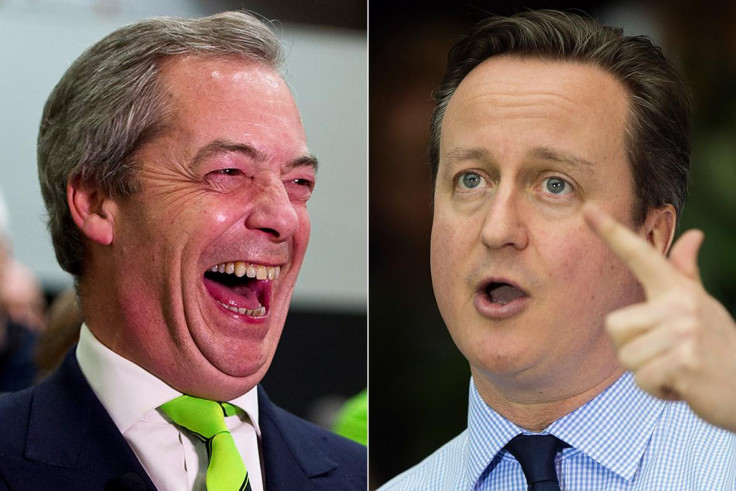If you want to convince us on the EU Cameron, make sure you take part in the BBC debates

Here we go again. This time in 2015, there was an extended row about which party leader might consent to appear on which stage at what time during the general election campaign. Broadcasters, politicians and their advisers danced around each other for months. The prime minister won that particular round of chicken and double bluff with the broadcasters, and avoided having to take part in a head-to-head debate with the then leader of the opposition, Ed Miliband.
Ahead of the EU referendum on 23 June, we are again promised a series of TV debates, culminating in a BBC extravaganza at Wembley Arena on 21 June. Leaders of the "leave" and "remain" campaigns will be involved. And the prime minister? Number 10 is not saying, although earlier indications were that he is, once again, unlikely to be involved in any head-to-head clashes with either Nigel Farage or any other prominent figure from the out campaign.
The prime minister is recommending the British people vote to remain members of the EU in June. But it looks as though he will not debate this point of view live with his main opponents. Vacating the stage a year ago worked out well for him, as opposition parties fought among themselves, undermining Labour's claims to be able to form a strong potential government.
This time the situation is simpler: voters will be facing a binary question: "leave" or "remain". But the effective leader of the "remain" campaign, David Cameron, may not be there to lead the fight. He will leave it to others – Alan Johnson, William Hague? – to do the job for him. Of course, Cameron may yet decide he has to be there. But if he isn't, his opponents will be free to suggest he lacks the confidence to make his case in the face of severe questioning.
For now we are merely at the start of that extended negotiation, which seems to be an inevitable part of any pre-election phase these days. (The exception was in 2010, when all three party leaders were keen to debate without too many preconditions.) We are set, it seems, for several months of silliness. It won't be until April that the Electoral Commission will designate the official "leave" and "remain" campaigns, each of which will receive public funds, a £7m spending limit and TV broadcast slots.
Thus far the debate, such as it is, has not been characterised by substantial arguments or dignified rhetoric. On the one hand, we are threatened with uncontrolled waves of migrants, possibly containing hordes of terrorists. On the other, some suggest business activity might seize up altogether the moment Britain decided to leave the EU.
Both sides are offering their own version of Project Fear. Almost nowhere do you hear a positive (let alone idealistic) case either for continued membership of the EU, or departure from it, being made. It's not that either side thinks that their option is wonderful. It's just that what the other lot are suggesting is madness and would lead to disaster.
This is the definition of uninspiring. One recalls Henry Kissinger's supposed comment about the Iran/Iraq war – "Can they both lose?" If the two campaigns want a decent turnout in June they will have to give us something to vote for. Name-calling and wild exaggeration will mainly put people off.
When two mediocre football teams play each other, the least rubbish one wins, usually. But the vote on 23 June is not some obscure sporting event: it is about the future of the country and its place in the world. That sense of seriousness has not been visible so far.
Both sides in this debate will have to raise their game significantly if they want us to take them seriously, and engage with this big moment in post-war history. We need some facts, arguments, vision and uplifting talk. That is how to win support and votes. That will make this referendum a meaningful event, settling the dispute for a generation at least.
And prime minister, really: if you do think staying in is such a good idea, please have the decency to turn up to the big debates to tell us and your opponents why.
© Copyright IBTimes 2025. All rights reserved.






















